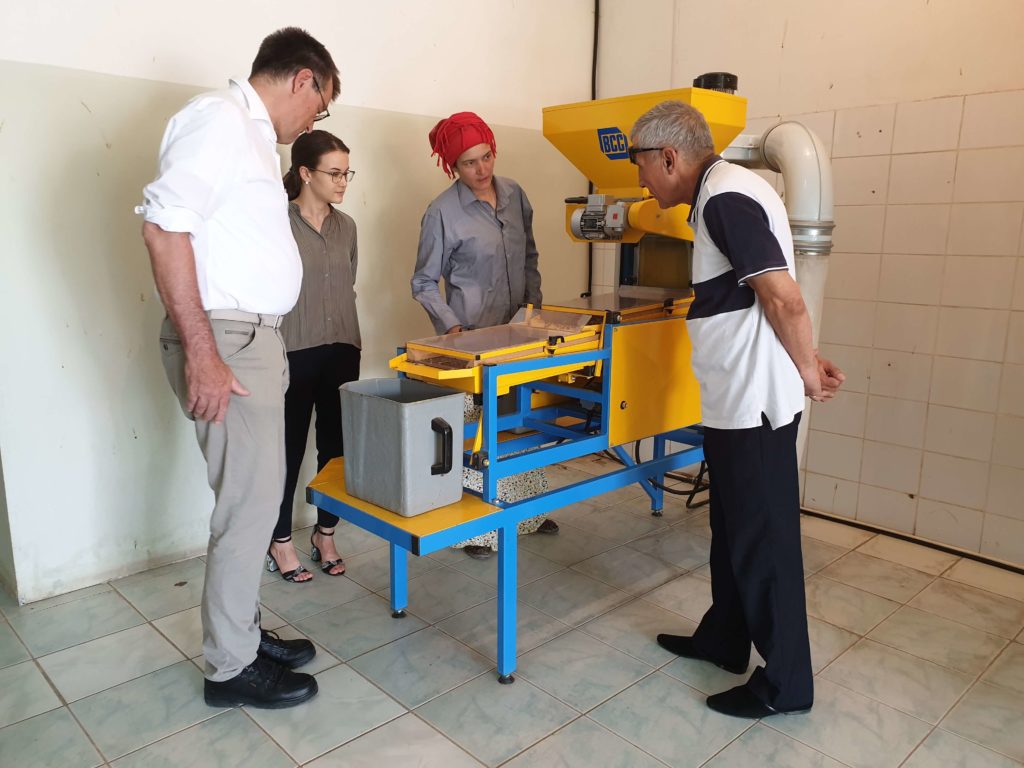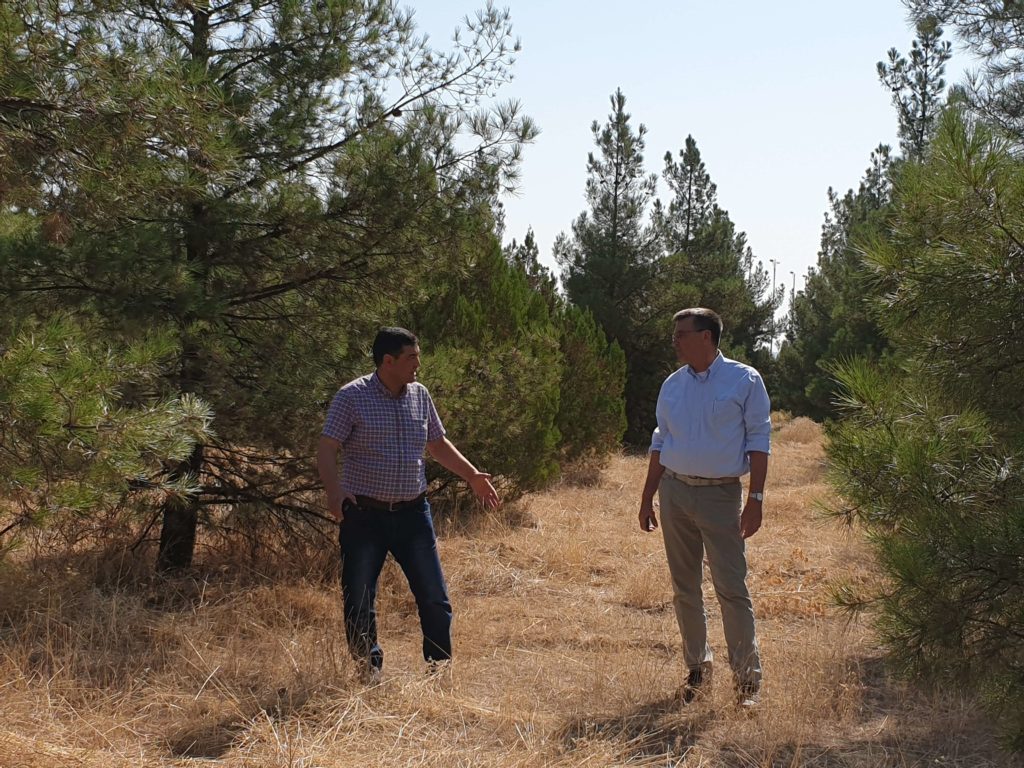During his firs visit to Turkmenistan new, SLU-CA’s new Programme Director, Mr. Klaus Schmidt-Corsitto, had a series of official meetings, most notably with Mr. Berdy Berdyev, the Ministry of Agriculture and Environment Protection’s Head of International Cooperation and Planning Department, with Mr. Mukhammet Durikov, Director of the National Institute of Deserts, Flora and Fauna (NIDFF),* Deputy Director of Turkmen Hydromet, and Deputy Director of the Forestry Administration.
Mr. Schmidt-Corsitto discussed with Mr. Berdyev the current status of cooperation and reaffirmed SLU-CA’s willingness to further support the Turkmenistani government in those areas of mutual interest established by his predecessors. In his turn, Mr. Berdyev expressed appreciation for the work of SLU-CA programme and listed other areas where GIZ expertise was valued and could be potentially built upon in the framework of current and/ or prospective programmes.
Specifically, he referred to the necessity of working on forest inventory and focusing more upon capacity-building of Hydromet* staff. With Mr. Mukhammet Durikov, Mr. Schmidt-Corsitto emphasised that GIZ has been a long-term partner of the NIDFF, boasting a long track record of successful cooperation dating back to 1995. Indeed, most of GIZ’s environmental programmes and projects have been physically located at the Institute, and it has been very convenient for the SLU-CA country office to be placed inside the same office as its national and regional partner, the Scientific and Information Centre of the Interstate Commission for Sustainable Development (SIC ICSD).*
Other highlights of Mr. Schmidt-Corsitto’s visit to Turkmenistan included meetings with the Executive Committee of the International Fund for Saving the Aral Sea (EC IFAS)* and the ICSD Secretariat on Elaboration of the Regional Environmental Programme for Sustainable Development in Central Asia (REP4SD).* The REP4SD is also working on the Aral Sea situation via the role it has in the environmental component of the Aral Sea Basin Programme (ASPB-4).*
Mr Schmidt-Corsitto was also invited to visit one of the Forest Administration’s nurseries in the Akhal Region that has been provided with equipment for processing cones and seeds of leskhozes. Mr Ata Babayev, Deputy Director of the Forestry Administration, noted, “Thanks to the full-cycle complex for harvesting seeds, the work of the Forestry Administration became more efficient.”
Finally, Mr Schmidt-Corsitto observed large-scare afforestation efforts by the Turkmenistani government. These are being implemented as part of the National Forestry Programme in the framework of the so-called Green Belt Project. The establishment of tree plantations throughout the country is considered to be an efficient measure for adaptation to climate change and, additionally, as Turkmenistan’s contribution to reduce carbon emissions.
*Abbreviations/Explanation:
NIDFF – National Institute of Deserts, Flora and Fauna
Hydromet – National Committee on Hydrometeorology under the Cabinet of Ministers of Turkmenistan
SIC ICSD – Scientific and Information Centre of the Interstate Commission for Sustainable Development
EC IFAS – Executive Committee of International Fund for saving the Aral Sea – the mission of EC IFAS is to coordinate cooperation at national and international levels in order to use existing water resources more effectively, and to improve the environmental and socio-economic situation in the Aral Sea Basin. EC IFAS serves as a platform for a dialogue among the countries of Central Asia, as well as the international community.
REP4SD – Regional Environmental Programme for Sustainable Development in Central Asia – the national processes for developing the REP4SD have started in April 2018. At regional level, development of REP4SD is supported and coordinated by GIZ regional programme for sustainable land use.
ASPB-4 – Aral Sea Basin Programme, this is the main long-term action programme in the region in the field of sustainable development, in particular for the sustainable management of water resources and related aspects. The programme includes national and regional projects.

